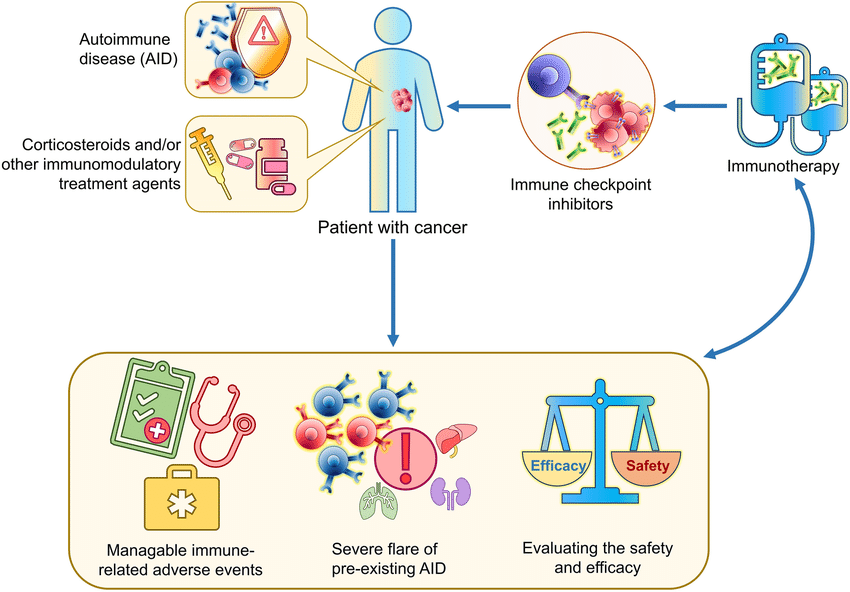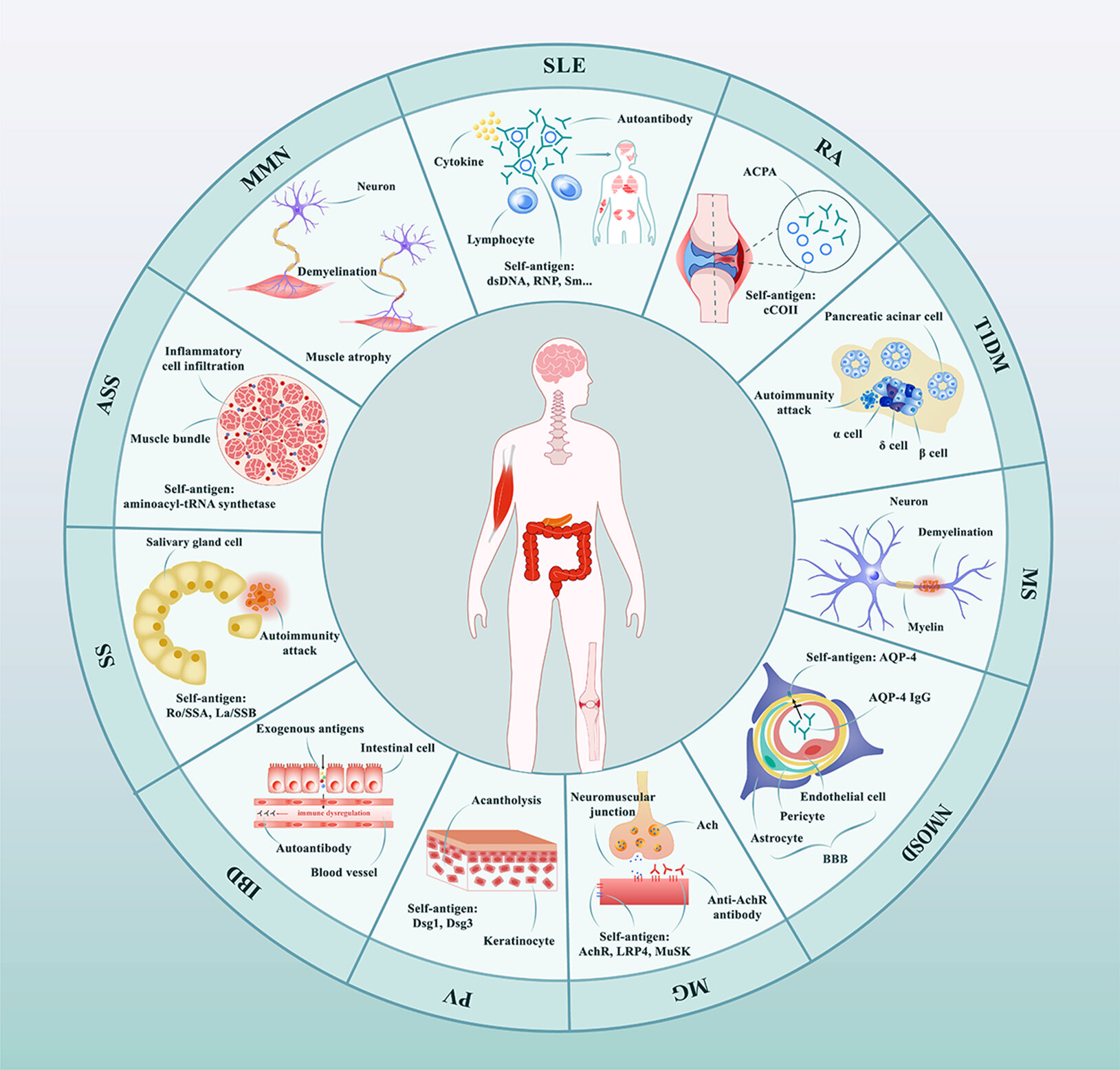Autoimmune diseases occur when the immune system attacks healthy tissues. Traditional treatments often suppress the entire immune system, making patients more susceptible to infections. Immunotherapy offers a new approach by directly targeting the immune system to treat the disease. This article explores recent advances in immunotherapy for autoimmune diseases, focusing on how to make these treatments more effective and cause fewer side effects.
Immunotherapy Approaches for Autoimmunity
Researchers are investigating several immunotherapy approaches for autoimmune diseases. Each approach targets a different part of the immune system:
- Cytokines: These are signaling molecules that control immune responses. Specific drugs can block certain cytokines, like TNF-alpha in rheumatoid arthritis or IL-17 in psoriasis, to reduce inflammation without broadly suppressing the immune system.
- B Cells: B cells produce antibodies. Rituximab, a drug that depletes B cells, is effective in some autoimmune diseases like lupus and is now a standard treatment.
- T Cells: T cells are immune system soldiers that attack targets. Existing immunosuppressants like cyclosporine A target T cell activation but can have broad effects, requiring close monitoring. Newer drugs target T cell co-stimulation, such as CTLA-4 and PD-1/PD-L1 inhibitors, and show promise in early clinical trials for autoimmune diseases.
- Cellular Therapy: CAR T-cell therapy, a revolutionary cancer treatment, is being explored for autoimmune diseases. Genetically engineered T cells with CARs specific for harmful B or T cells are being studied to see if they can eliminate these destructive cells.
Balancing Effectiveness and Safety
While immunotherapy has great promise, finding the right balance between effectiveness and side effects remains a challenge. Here's what researchers are focusing on:
- Targeting Specificity: Precisely targeting the harmful immune response is crucial to avoid harming healthy immune function. Biomarkers that distinguish healthy from harmful immune cells are needed for personalized treatment strategies.
- Immune System Complexity: The immune system is a complex network of different cell types. Researchers need to understand how immunotherapy affects this network to avoid causing new autoimmune problems.
The Future of Immunotherapy
The future of immunotherapy for autoimmune diseases involves:
- Combination Therapies: Combining targeted immunotherapies with traditional medications might offer greater benefits while reducing individual drug side effects.
- Nanoparticle Therapies: Encapsulating immune-modulating drugs in nanoparticles allows for targeted delivery to specific tissues and immune cells, potentially reducing side effects.
- Gene Editing: Precisely correcting the underlying genetic cause of autoimmune diseases holds promise for long-term control, but significant technical and ethical hurdles remain.
Learn More About Future Directions in ImmunoTherapy in This Video:
Conclusion
Immunotherapy is a powerful new tool for managing autoimmune diseases. With continued research on targeted approaches and personalized medicine, immunotherapy has the potential to provide long-lasting disease control and improve patients' quality of life. Researchers developing new immunotherapies can rely on high-quality reagents from reputable suppliers like Maxanim to ensure the accuracy and reproducibility of their experiments.


Immunotherapy for Autoimmune Diseases: Finding the Right Balance